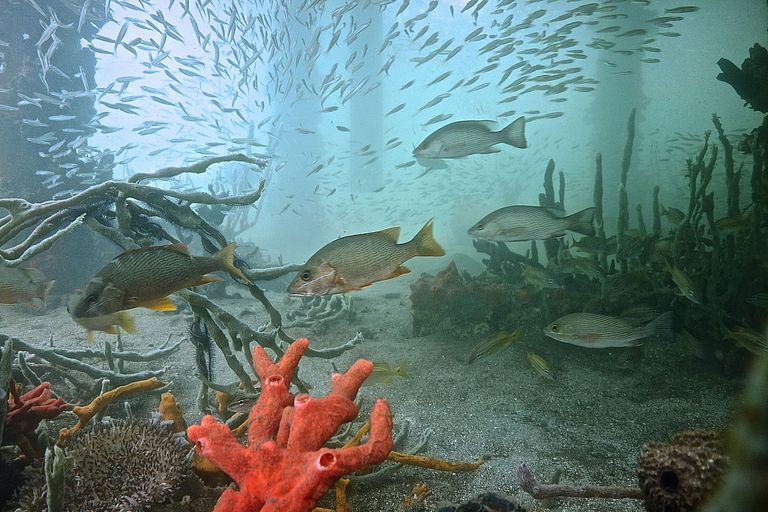New framework agreement on biodiversity protection
- Researchers warn: genetic diversity remains unconsidered -
Biodiversity on our planet is under threat and is declining, in some cases dramatically, due to intensive land use, pollution and climate change, both on land and in the oceans. However, a high level of biological diversity is essential for many ecosystem functions such as the production of biomass and thus also food for humans. This is why the Convention on Biological Diversity (CBD), an international alliance within the framework of the United Nations Environment Programme (UNEP), is also addressing this issue. However, the draft for an international framework agreement for the protection of biological diversity now published by the CBD is criticized by many scientists, who have published their concerns in an open letter in the international journal Science.
“In general, we welcome the process initiated by the CBD”, says Prof. Dr. Thorsten Reusch, Head of the Research Division Marine Ecology at GEOMAR Helmholtz Centre for Ocean Research Kiel, co-author of the study. However, according to Reusch, the crucial role of genetic diversity within species for ecosystem resilience, species survival and adaptation in a rapidly changing environment is not considered in the document. “Worldwide research results show that genetic diversity is essential for the evolutionary adaptation of organisms and also for the development of species diversity in general”, Prof. Reusch continued. “Before species become extinct, their genetic diversity is usually greatly reduced, and measurements of this diversity component can therefore serve as early warning indicators. In this respect, the current document is a step backward because it focuses almost exclusively on species diversity”, says the marine biologist from Kiel.
The framework document published by the CBD describes the urgent need to halt the loss of biodiversity by 2030 and to live in harmony with natural ecosystems and their biodiversity by 2050. New concrete targets and commitments for biodiversity conservation for the period after 2020 are currently being discussed by governments and non-governmental stakeholders, and a decision is expected in October 2020.
The new framework document of the CBD is intended to guide countries in their actions to conserve biodiversity and assess their progress. It sets several objectives: to protect ecosystems, species and genes, and to promote sustainable development and ensure a fair sharing of the benefits arising from the use of biodiversity and traditional knowledge. While the conservation of genetic diversity is in principle included, researchers criticise the fact that, to date, diversity indicators have been limited to domesticated and cultivated species rather than wild populations. They urgently recommend that the document be expanded in such a way that the genetic diversity of all species and thus their potential for adaptation is preserved. Thorsten Reusch: “However, we do not only criticise, but also make concrete proposals in our publication on how improved indicators can indicate genetically effective population sizes and reduce the risk of genetic erosion, as is currently the case, for example, in many over-exploited fish stocks”.
Original paper:
Laikre, L., S. Hoban, M. W. Bruford, G. Segelbacher, F. W. Allendorf, G. Gajardo, A. González Rodríguez, P. W. Hedrick, M. Heuertz, P. A. Hohenlohe, R. Jaffé, K. Johannesson, L. Liggins, A. J. MacDonald, P. Orozco-ter Wengel, T. B. H. Reusch, H. Rodríguez-Correa, I.-R. M. Russo, N. Ryman, and C, Vernesi, 2020: Post-2020 goals overlook genetic diversity, Science, doi: 10.1126/science.abb2748.



